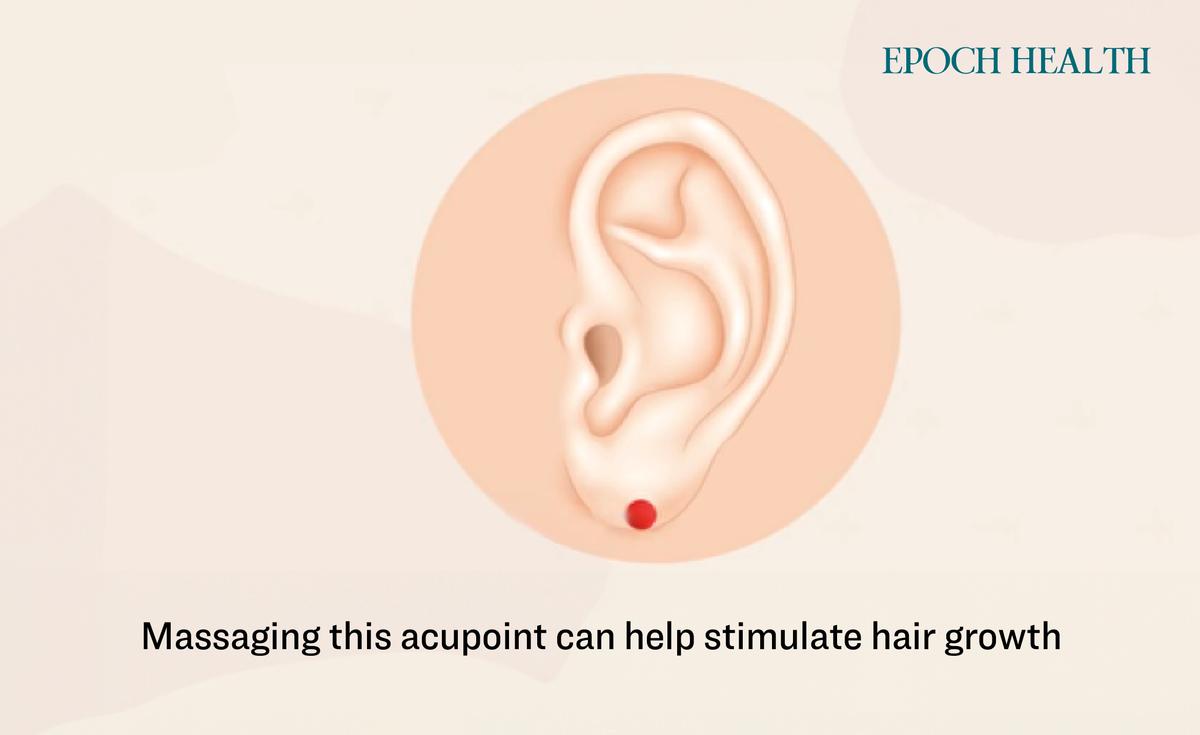
Even with the “baldness gene” one may achieve a healthy head of hair.
Some people experience hair loss at a very young age. Is baldness inherited? I was once asked by a patient, “My dad and grandfather are both bald. Will I also go bald in the future?” Well, it is certainly a possibility. So, how can one prevent baldness?
Assessing the Presence of the ‘Baldness Gene’
Take a look at the hairline above the temples. If it is receding upwards, it indicates the presence of the “baldness gene.” However, having the baldness gene does not necessarily mean immediate or inevitable baldness. In addition to genetics, male hormones also contribute to the development of baldness.
The human body maintains a balance of male and female hormones. Generally, men have higher levels of male hormones and lower levels of female hormones, while women exhibit the opposite pattern.
If a man carries the baldness gene and has an elevated level of male hormones in his body, he is more susceptible to hair loss and baldness. Most young men around the age of twenty boast thick and abundant hair, even if they exhibit a receding hairline. However, as they enter their forties, when the proportion of female hormones in their bodies is at its lowest, hair loss becomes noticeable. Therefore, it is quite common for men to start experiencing baldness around the age of forty.
Some women, around the age of fifty, particularly after menopause, are more prone to experiencing hair loss. This is often due to genetic factors, as well as a decrease in female hormones and an increase in male hormone levels.
3 TCM Approaches to Improve Hair Loss and Prevent Baldness
1. Siwu decoction to prevent hair loss
In TCM, it is believed that “hair is the surplus of blood.” Siwu decoction can nourish yin and replenish blood, as well as enhance the secretion of female hormones, thus promoting hair growth.
Ingredients:
- Angelica sinensis: 15g
- Ligusticum chuanxiong: 15g
- White peony root: 15g
- Rehmannia root: 15g
- Half a hen
Preparation:
Simmer the ingredients for 60 minutes to prepare as a chicken soup, add seasonings according to taste preferences.
Drinking Siwu decoction can improve hair loss issues and promote hair growth. It is suitable for both men and women.
It is advisable for women to drink Siwu decoction after each menstrual cycle. This helps reduce blood stagnation in the uterus and alleviates pain.
2. Regulate emotions and manage stress
Emotions can also contribute to hair loss. For instance, many people are familiar with a condition known as “alopecia areata,” (psychological baldness) which is referred to as “ghost shaved head” in traditional Chinese medicine.
Alopecia areata is believed to be triggered by severe emotional issues that compromise the immune system, leading to viral infections. Individuals with this condition experience large patches of hair loss, often in circular patterns. Notably, those with alopecia areata typically display problems such as irritability, excessive worry, high emotional stress, and nervousness.
In traditional Chinese medicine, there is a concept known as the “Seven Emotions,” which refers to joy, anger, anxiety, contemplation, grief, fear, and fright. Excessive experiences of these emotions can lead to illness:
- Excessive joy can harm the heart.
- Excessive anger can harm the liver.
- Excessive anxiety and contemplation can harm the spleen.
- Excessive grief can harm the lungs.
- Excessive fear and fright can harm the kidneys.
Therefore, maintaining emotional balance is crucial for overall well-being.
I once had a patient who experienced alopecia areata in his early twenties. When he first visited, his entire head was bald. It took me about six months to successfully treat him, and his hair eventually grew back thick and healthy. However, he returned a few months later, and as I examined his bald head, I could not help but feel puzzled.
I asked: “Why are you bald again?” He told me that he is still very anxious and troubled due to overwhelming stress in relationships and finances, resulting in a recurrence of the old condition.
I have another friend who, about twenty years ago, dealt with tremendous stress from exams, his father’s illness, and his wife’s health issues. Consequently, he developed alopecia areata, and it has persisted until now without recovery.
Interestingly, this friend is a doctor himself, yet he has not been able to treat his own hair loss. Therefore, it seems that, besides medical intervention, effectively managing one’s emotions is crucial for addressing alopecia areata.
3. Stimulate hair growth and darkening with scalp acupoint massage
According to TCM, meridians are the channels through which energy flows in the human body. They are responsible for transporting qi and blood—the fundamental substances that constitute and sustain human life—throughout the body. The circulation of qi and blood maintains the balance and stability of various tissues and organs. When there is an imbalance or deficiency of qi and blood in the body, diseases or other conditions may occur.
Acupoints are unique terms in Chinese culture and Traditional Chinese Medicine, referring to locations with numerous nerve endings and blood vessels. In Traditional Chinese Medicine, acupoints are found along the meridians, which are pathways associated with the body’s organs. These points are specific areas where qi and blood gather, flow, and enter or exit. They are considered focal points of energy in the human body. By stimulating the corresponding acupoints through techniques like massage, tapping, and acupuncture, it is possible to treat diseases related to specific organs.
There is an acupoint located on the edge of the earlobe. Pressing it while tapping the scalp with the fingertips not only promotes hair growth but also helps darken the hair.

Targeted Treatment Methods for Illness-Induced Hair Loss
I had a patient experiencing severe hair loss at the back of the head, specifically behind the Baihui acupoint area. The hair loss was attributed to a fungal infection. I prescribed a formula to dispel wind, eliminate dampness, and clear heat, which alleviated the itching on his scalp. Consequently, his hair regrew, and while the hair on the affected scalp is now a bit shorter, it matches the rest of his hair in appearance.
In TCM, many illnesses are believed to be caused by external forces in the environment. These forces are known as the six external pathogenic factors of wind, cold, summer heat, dryness, dampness, and fire. TCM employs methods such as acupuncture and herbal remedies to expel these external factors from the body, thereby treating various diseases.
Additionally, when washing your hair, refrain from using your fingernails to scratch the scalp. It is advisable to use the pads of your fingers for massaging, even if your scalp feels itchy.
How ofter should hair be washed? Washing it daily has the benefit of reducing the risk of fungal and bacterial infections. However, frequent washing with shampoos containing preservatives, various fragrances, and other chemicals can damage the hair. Opting for a shampoo with natural ingredients and no preservatives could be a healthier choice for the hair.
Disclaimer
The watching, interacting, and participation of any kind with anything on this page does not constitute or initiate a doctor-patient relationship with Dr. Farrah™. None of the statements here have been evaluated by the Food and Drug Administration (FDA). The products of Dr. Farrah™ are not intended to diagnose, treat, cure, or prevent any disease. The information being provided should only be considered for education and entertainment purposes only. If you feel that anything you see or hear may be of value to you on this page or on any other medium of any kind associated with, showing, or quoting anything relating to Dr. Farrah™ in any way at any time, you are encouraged to and agree to consult with a licensed healthcare professional in your area to discuss it. If you feel that you’re having a healthcare emergency, seek medical attention immediately. The views expressed here are simply either the views and opinions of Dr. Farrah™ or others appearing and are protected under the first amendment.
Dr. Farrah™ is a highly experienced Licensed Medical Doctor certified in evidence-based clinical nutrition, not some enthusiast, formulator, or medium promoting the wild and unrestrained use of nutrition products for health issues without clinical experience and scientific evidence of therapeutic benefit. Dr. Farrah™ has personally and keenly studied everything she recommends, and more importantly, she’s closely observed the reactions and results in a clinical setting countless times over the course of her career involving the treatment of over 150,000 patients.
Dr. Farrah™ promotes evidence-based natural approaches to health, which means integrating her individual scientific and clinical expertise with the best available external clinical evidence from systematic research. By individual clinical expertise, I refer to the proficiency and judgment that individual clinicians acquire through clinical experience and clinical practice.
Dr. Farrah™ does not make any representation or warranties with respect to the accuracy, applicability, fitness, or completeness of any multimedia content provided. Dr. Farrah™ does not warrant the performance, effectiveness, or applicability of any sites listed, linked, or referenced to, in, or by any multimedia content.
To be clear, the multimedia content is not intended to be a substitute for professional medical advice, diagnosis, or treatment. Always seek the advice of your physician or other qualified health providers with any questions you may have regarding a medical condition. Never disregard professional medical advice or delay in seeking it because of something you have read or seen in any website, video, image, or media of any kind. Dr. Farrah™ hereby disclaims any and all liability to any party for any direct, indirect, implied, punitive, special, incidental, or other consequential damages arising directly or indirectly from any use of the content, which is provided as is, and without warranties.








